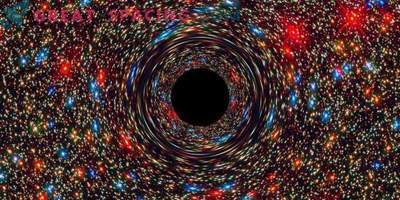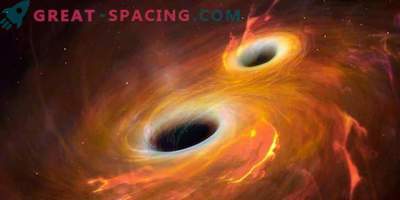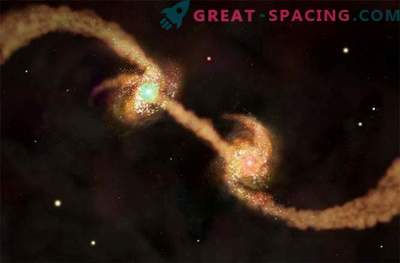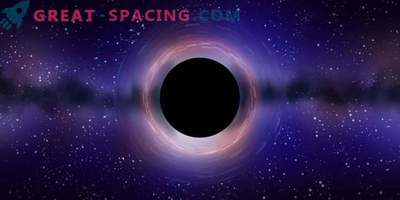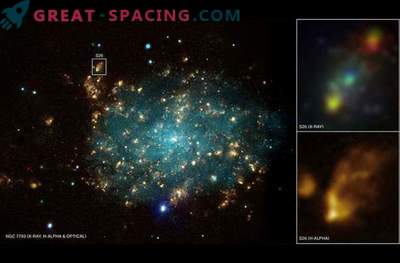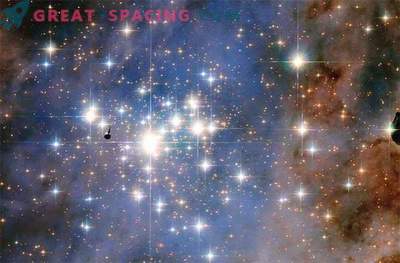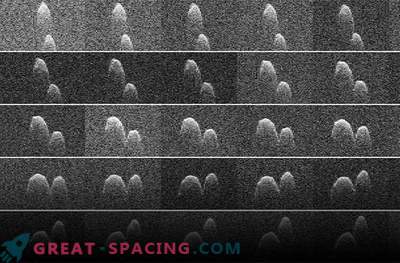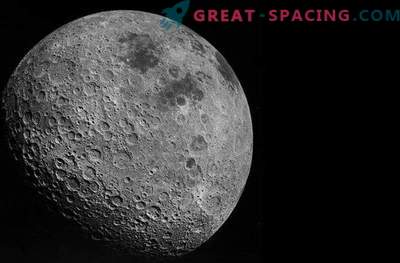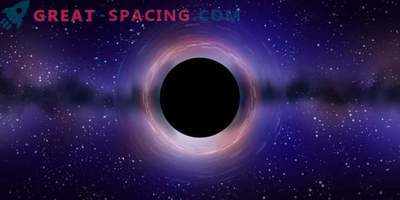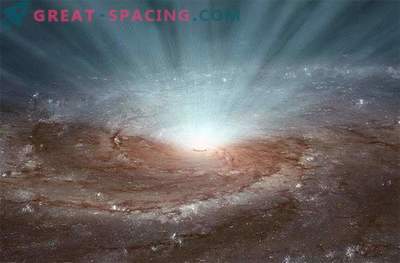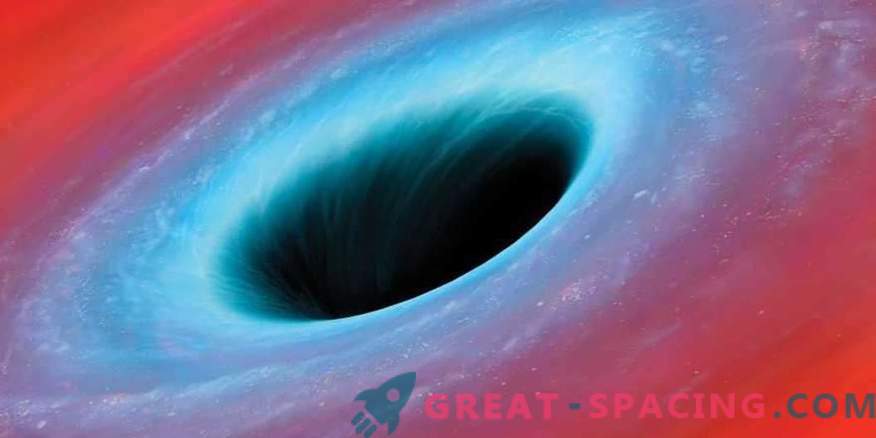
Huge, hungry and invisible! Black holes seem to us to be hidden monsters of the Universe, which absorb literally everything around. It is terrible to be near such an object. But can black holes absorb the Universe and will it ever be done?
Let's understand this question. The universe is considered infinite space, so you will agree, it is extremely difficult to absorb. At a minimum, we need a huge number of black holes. How many of them?
The study of galaxies and mathematical calculations show that in the center of each galaxy we can find one supermassive black hole. In outer space, you can find 100-200 billion galaxies (at least), which means that so many supermassive monsters exist. But this is just a supermassive type. There are also ordinary black holes, which are much larger!
And their number is constantly increasing. To create a black hole, you will need the death of a massive star, the collision of neutron stars or the collapse of a huge amount of gas or the central galactic part. In theory, every second a new black hole is born. Well, that means these invisible threats are an incredible array. Then why is our universe still intact?
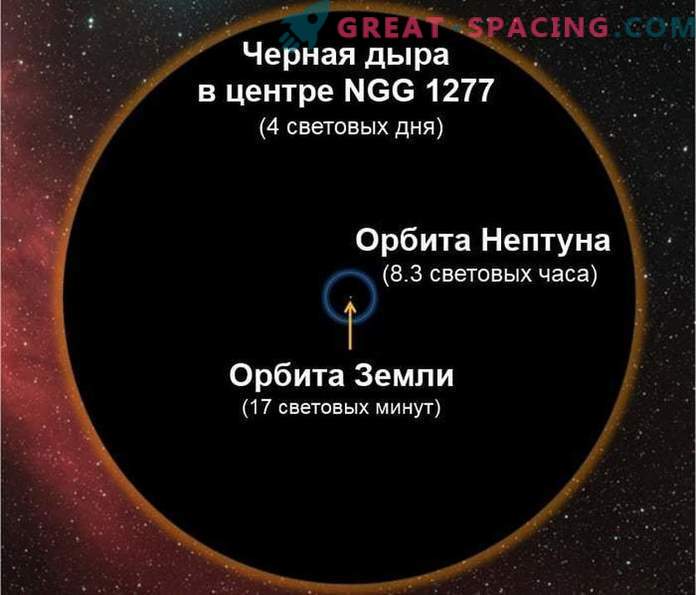
Size of the largest black hole known
Let's start with the fact that black holes are not such monsters. Yes, their gravity is so strong that even light cannot escape. But this does not mean that we face a gravitational vacuum cleaner that sucks the whole Universe. Black holes have a limit of influence. It's about the event horizon. If the object crosses the line, then it is finished (swallowed, burst, etc.). But many stars, planets and other cosmic bodies surround black holes and do not approach a dangerous distance, leaving black holes hungry.
Well, but after all black holes eat, increase in weight and should expand. So, their influence increases. So? Not really. Scientists in theory know that there is an expansion and an increase in the mass and impact on matter around, but this is not observed in practice. And this is strange, because black holes have existed for a long time and had to swallow so much matter in order to go beyond the limits of their own galaxy. Why is this not happening?
Here you can recall Hawking radiation. The well-known theoretical physicist believed that at the microscopic level, matter still escapes from a black hole, although the absorption still exceeds the amount of released substance.
The theory of the theoretical physicist Leonard Susskind seems interesting. He believed that black holes widen, but inward, not outward. We are simply not able to fix this expansion, so black holes do not increase in size, which we could observe.
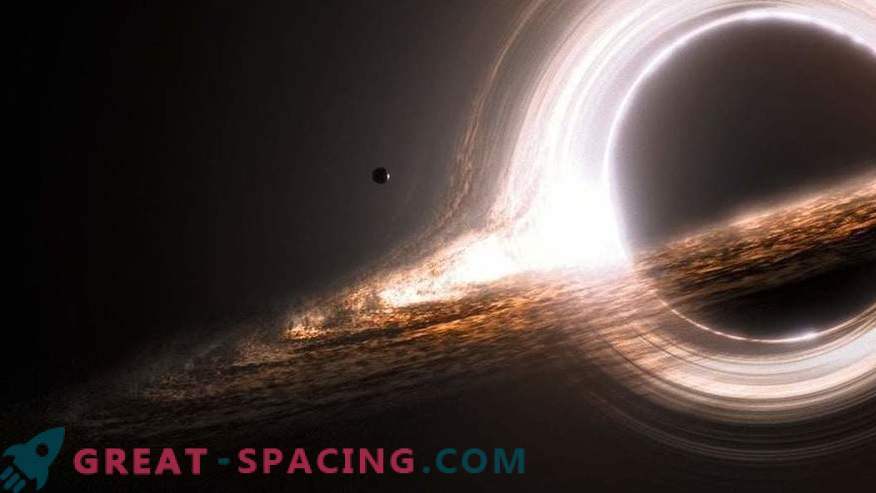
It turns out that black holes (even if supermassive) are still not able to tear and absorb all the space. But after all, one of the theories of the death of the Universe says that at the prefinal stage only black holes will remain. Yes, but this is not because they swallowed up all the other objects. The fact is that the stars have their own evolutionary path, depending on the specific type. Some will become brown dwarfs, others black holes, etc. New stars will not be born, because the necessary material will end up in the form of gas and dust. So the future Universe will be a dark place with colliding and merging black holes.
But they will not be eternal. After 10 ^ 100 years, the last black hole should die. Here we again return to the theory of radiation of Hawking. Releasing a small amount of matter depletes black holes, so they shrink and evaporate (in theory). Now these are trifles, because they absorb more than they radiate. But in the future there will be no stars, dust and gas to feed.
So the answer is: no, black holes will not swallow the Universe. But among the objects known to us, they will become the last witnesses of the destruction of outer space, giving way to photons and elementary particles.


